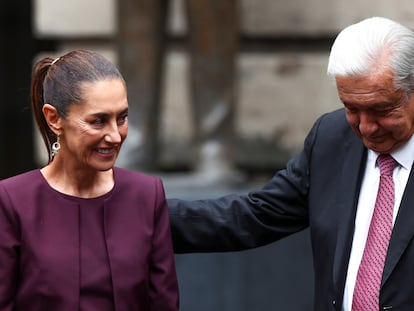
Spain lodged formal complaint against Mexico for snub to King Felipe
Spanish Prime Minister Pedro Sánchez has expressed his ‘great sadness’ over the row, which he blamed on political motivations

Spanish Prime Minister Pedro Sánchez has expressed his ‘great sadness’ over the row, which he blamed on political motivations
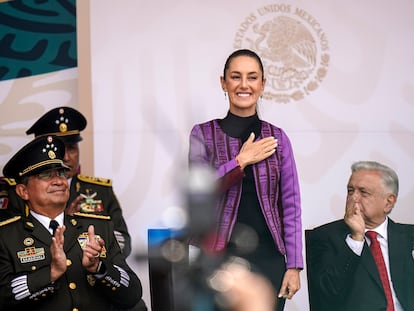
The president-elect says in a statement that ‘Mexico and Spain share a solid relationship of friendship,’ but adds that ‘it would benefit from a renewed perspective’

At an EL PAÍS forum, the leader called for increased public investment, arguing it has had a more positive effect on the economy than the ‘neoliberal dogma’ seen during austerity
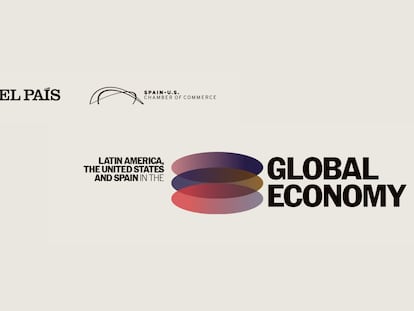
Spanish Prime Minister Pedro Sánchez, industry leaders and key stakeholders will take part in Tuesday’s event in New York
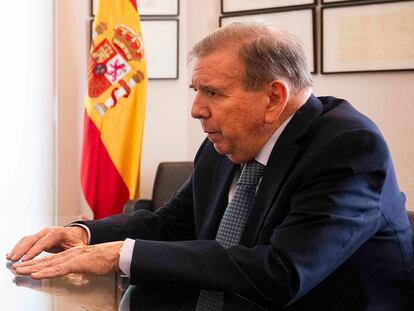
The Venezuelan opposition candidate, in response to accusations that Spain maneuvered to benefit Chavismo by facilitating his exile, clarified that Spanish diplomacy did not exert ‘any kind of pressure’

Almost 70% of Spaniards believe that the democratic system in their country is deteriorating, only half feel represented by a party and 36% believe that politics would get worse if more immigrants actively participated in it

The politician, who was ousted by the central government after a failed secession attempt in 2017 and faces embezzlement charges, vanished shortly after giving a speech outside the regional parliament

The right-wing leader will make his second trip to the Spanish capital in order to accept a prize from a neoliberal think tank and a medal from the regional government of Madrid

The Ukrainian leader has visited over 10 countries so far ahead of the June 16 peace summit in Switzerland, which U.S. President Joe Biden will not attend

An investigation by EL PAÍS with Lighthouse Reports reveals how Morocco, Mauritania and Tunisia use European financing to detain and forcibly displace migrants and refugees. The victims are primarily Black people. The objective: prevent them from reaching Europe

In an interview with EL PAÍS, the president of the European Council says he anticipates Russian interference in the European elections but plays down polls forecasting the rise of the extreme right

The 34-year-old, whose parents fled to Syria in the 1960s, says she is ‘angry and sad’ about how Israel mixed footage of her dancing with images of Hamas to attack the Spanish government

Prime Minister Pedro Sánchez made the announcement simultaneously with Ireland and Norway, leading to accusations from Israel of complicity ‘in incitement to genocide against the Jewish people’

The monarch endorsed the peace plan put forward by the Ukrainian president and called for the ‘complete, immediate, and unconditional withdrawal of all Russian forces from the territory of Ukraine’

The battle with Pedro Sánchez has obscured street protests and the government’s difficulties securing support for its sweeping bill to defund the State

Some lawmakers have requested details about the president’s visits to the US, Switzerland, Israel, Italy and Spain, which they say were more private than public in nature as he did not meet with government officials

The party has won in the Spanish northeastern region for the first time, while pro-independence groups lost their majority. But Salvador Illa lacks enough lawmakers to form a government and faces tough negotiations

Spain, Ireland, Slovenia and Malta are discussing a simultaneous announcement ahead of the EU elections in order to remove the decision from the electoral debate
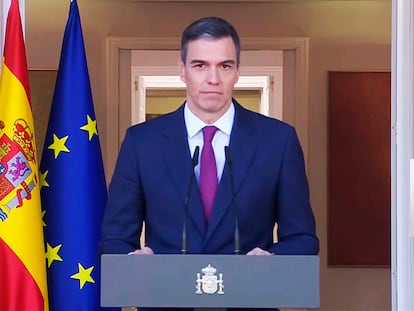
The PM says he will be ‘stronger’ and fight what he describes as a harassment campaign against his wife that is part of a larger reactionary movement spreading in Spain and the world
The leader of the Socialist Party announced he is rethinking his position after a judge opened a case against Begoña Gómez following a complaint filed by an ultra-conservative group
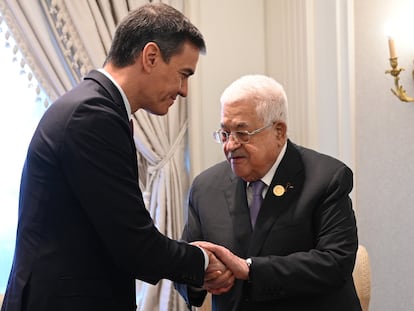
According to government sources the decision is imminent, although no specific date has been set yet
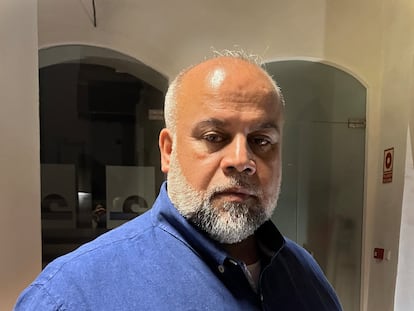
The bureau chief of Al Jazeera television in the Strip, who lost his wife and three of his sons in bombings, tells EL PAÍS that Israel is ‘deliberately killing journalists in Gaza’ to prevent them reporting on the war

Madrid’s rightwing regional president, Isabel Díaz Ayuso, who is seen as a possible future party leader and prime ministerial candidate, has come under fire in recent months on several fronts
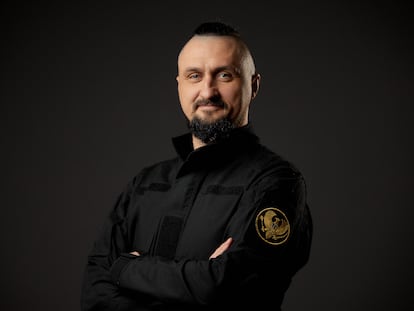
Alexander Kamyshin says Kyiv has already tested unmanned ground devices on the front lines that ‘kept the Russians at bay for 40 days’
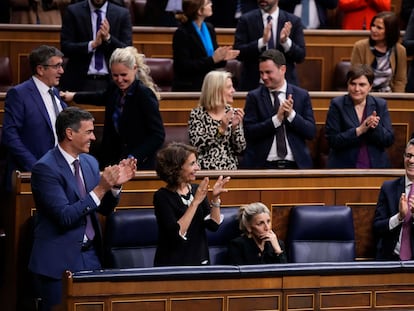
Socialist Prime Minister Pedro Sánchez has promoted the amnesty as a way to move past the 2017 secession attempt by the then-leaders of Catalonia. The opposition accuses him of selling out the rule of law in exchange for another term in power
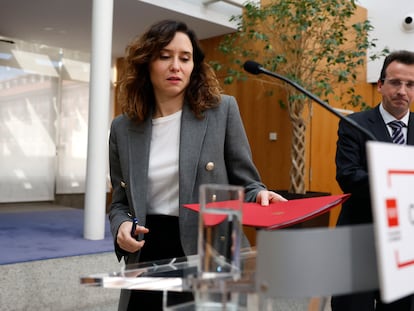
Isabel Díaz Ayuso says the million-euro commissions charged by Alberto González are being aired to cover up the Spanish central government’s own graft scandal, known as the ‘Koldo case’
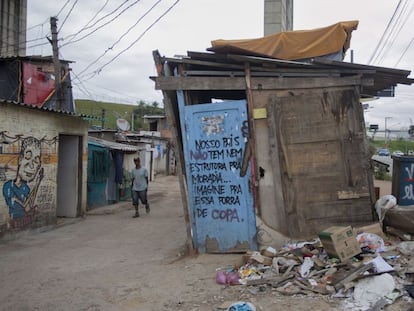
Rarely has support among the world’s progressive forces — such as Spain and Brazil — been as necessary as it is today